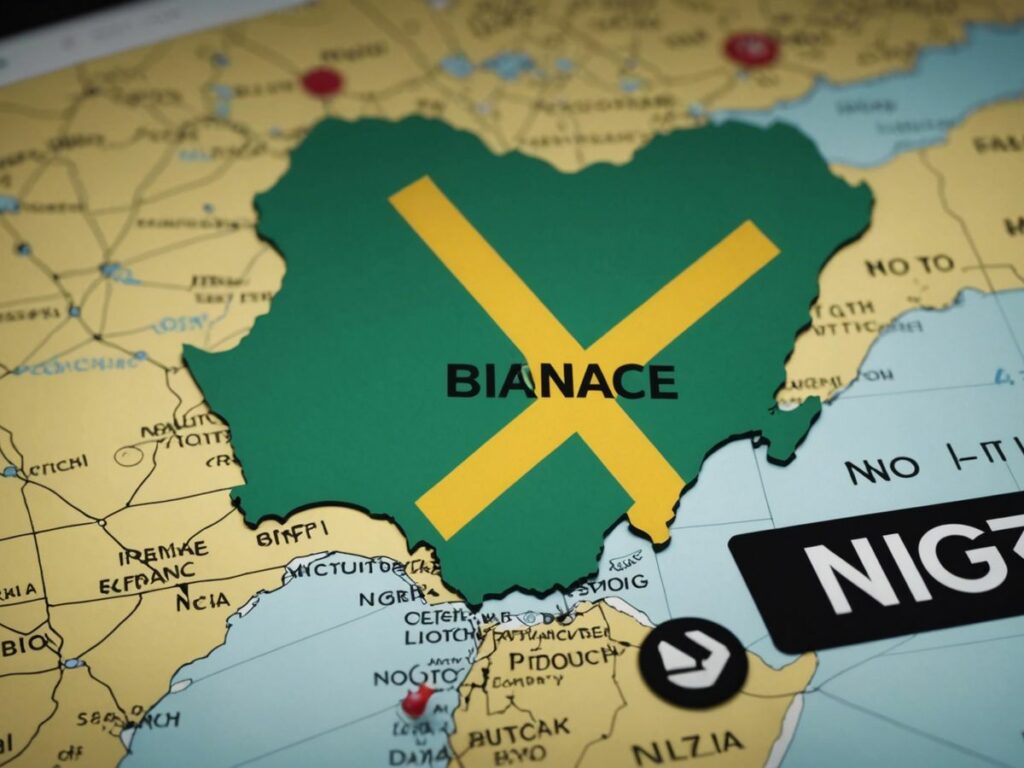Nigeria has recently directed its telecommunication companies to block access to major cryptocurrency platforms, including Binance, Coinbase, and OctaFX. This move comes just months after the Central Bank of Nigeria lifted its ban on crypto transactions, highlighting the country’s volatile regulatory environment for digital assets.
Key Takeaways
- Nigeria has instructed telecom firms to block access to major crypto platforms like Binance, Coinbase, and OctaFX.
- The move aims to curb currency speculation activities within the country.
- The Central Bank of Nigeria had lifted a previous ban on crypto transactions in December 2023.
- The decision has sparked significant backlash from the Nigerian crypto community.
- Binance and other platforms are working to ensure compliance with local regulations.
Nigeria’s Regulatory U-Turn
In a surprising turn of events, Nigeria has directed its telecommunication companies to block access to the websites of prominent cryptocurrency firms. According to a report from Business Day, the firms affected include Binance, OctaFX, and Coinbase. This decision follows the Central Bank of Nigeria’s policy shift in December 2023, which saw the lifting of a previous ban on crypto transactions. The recent move aims to curb currency speculation activities within the country.
Government’s Stance on Crypto
The Nigerian government has expressed concerns over currency speculation and its impact on the Naira. The Special Adviser to Nigerian President Bola Tinubu on Information and Strategy, Mr. Bayo Onanuga, accused crypto exchanges of manipulating the Naira, leading to its continued fall in the forex market. He urged the Economic and Financial Crimes Commission (EFCC) and the Central Bank of Nigeria (CBN) to take swift action against these platforms.
Impact on the Nigerian Crypto Community
Nigerians have taken to social media to express their dismay over the government’s decision to restrict access to cryptocurrency websites. With concerns mounting over the decline of the Naira against the dollar, many are skeptical about the efficacy of the government’s measures in addressing underlying economic issues. The potential blockade of online platforms like Binance raises questions about the accessibility of digital assets in Nigeria and the resilience of the country’s crypto community.
Binance’s Response
In response to user complaints about the inability to access its platform, Binance emphasized its commitment to a market-driven and transparent environment. The platform clarified that it had paused transactions to prevent price suppression, denying allegations of currency speculation. Binance has reiterated its engagement with local authorities and regulators to ensure compliance with evolving cryptocurrency regulations.
Global Regulatory Scrutiny
The latest legal challenges for Binance in Nigeria follow a recent ban in India. The Financial Intelligence Unit (FIU) of India issued notices to Binance and other firms for allegedly operating illegally through offshore entities. This development highlights the ongoing regulatory scrutiny faced by cryptocurrency platforms worldwide, signaling potential hurdles for their operations and further complicating the regulatory landscape.
Conclusion
Despite the regulatory challenges, Nigeria’s crypto enthusiasts remain resilient, exploring alternative avenues to engage with digital assets. The uncertainty surrounding the future of crypto exchanges in Nigeria underscores the importance of transparent dialogue between regulators, policymakers, and industry players. As debates surrounding crypto regulation intensify, stakeholders emphasize the need for a balanced approach that fosters innovation while addressing concerns about currency manipulation and illicit financial activities.
